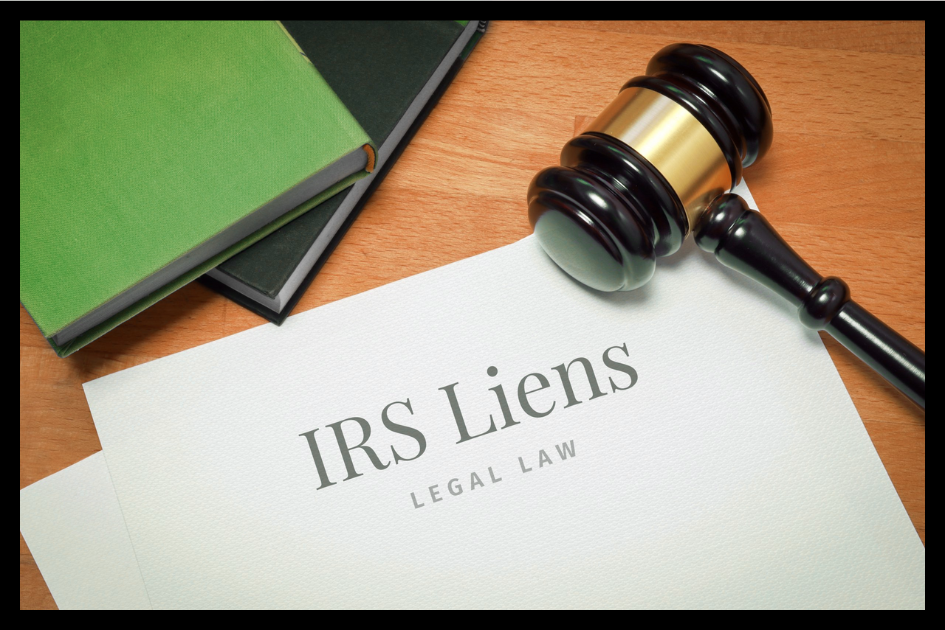Few things strike fear into a business owner like the words “federal tax lien.” When you fall behind on taxes, the IRS doesn’t just send notices—it can secure its claim against your assets through IRS tax liens.
These liens don’t mean the IRS takes your property immediately, but they give the government legal rights to it until your debt is paid. For small businesses, the effects of IRS tax liens can be devastating—hurting credit, scaring off lenders, and even limiting opportunities for growth.
Let’s break down exactly how IRS tax liens work, how they impact your business, and what you can do if one has been filed against you.
What Is an IRS Tax Lien?
An IRS tax lien is the government’s legal claim against your property when you fail to pay your tax debt. It attaches to:
- Real estate (homes, commercial property, land)
- Business assets (equipment, accounts receivable)
- Personal property (vehicles, valuable assets)
The lien ensures the IRS has first rights to these assets over other creditors. While a lien doesn’t seize property immediately, it creates a serious obstacle to borrowing, selling, or expanding your business.
How IRS Tax Liens Affect Your Business
The impact of IRS tax liens goes far beyond a line on your record. Here are the most common ways they disrupt small businesses:
1. Damaged Credit
Liens used to appear on credit reports directly. While the IRS no longer reports them to credit bureaus, lenders and vendors still discover them through public records. This can tank your credibility.
2. Blocked Financing
Need a loan for equipment or expansion? A tax lien signals high risk, making it nearly impossible to secure financing until the debt is resolved.
3. Strained Vendor Relationships
Suppliers and partners may see a lien as a sign of instability and hesitate to extend credit or long-term contracts.
4. Limited Asset Control
While the lien doesn’t seize your assets, it does prevent you from selling property freely. Any sale proceeds may go directly to the IRS.
5. Business Growth Delays
With financing blocked and reputation damaged, growth plans often stall until the lien is addressed.
How IRS Tax Liens Are Filed
The process usually follows this timeline:
- Unpaid taxes – You miss a payment or fail to resolve your balance.
- IRS notice – The IRS sends bills and demand letters.
- Notice of Federal Tax Lien (NFTL) – If unpaid, the IRS files a public document establishing its claim.
At this stage, the lien becomes official and visible to lenders and other parties.
Options for Resolving IRS Tax Liens
If you’ve been hit with a lien, all is not lost. Here are some ways to resolve or lessen the impact:
- Full payment – Paying the debt in full removes the lien.
- Installment agreement – Setting up a payment plan can sometimes lead to withdrawal of the lien.
- Lien withdrawal – If you’re in compliance and meet certain requirements, the IRS may withdraw the lien even before the debt is fully paid.
- Lien subordination – Allows another creditor to take priority, making it possible to refinance or secure loans.
- Offer in compromise – Settling for less than the full amount owed may result in the lien being released.
Working with a tax professional can help identify which option best fits your situation.
How to Prevent IRS Tax Liens
Prevention is always better than dealing with a lien after it’s filed. To avoid IRS tax liens:
- Stay current with filing deadlines.
- Pay estimated taxes quarterly if required.
- Respond quickly to IRS notices.
- Set up a payment plan at the first sign of trouble.
The IRS typically doesn’t file liens until tax debts reach a certain threshold. Being proactive can stop the process before it escalates.
Final Thoughts
IRS tax liens are one of the most damaging actions the IRS can take against a small business. They affect credit, financing, and even your ability to grow. But while a lien is serious, it doesn’t mean your business is doomed.
By understanding how liens work, exploring relief options, and acting quickly, you can protect your assets and rebuild financial stability. If you’ve received notice of a lien, don’t wait—address it before it creates long-term damage.

